3 Easy Ways For How To Tune A Guitar
Are you struggling to get your guitar in tune?
I don’t think there is anything worse than circling round and round, trying to get each string in tune, then finally playing a chord, and it STILL sounds off.
Perhaps you even broke a string trying to tune your guitar.
Well, in this post I am going to share with you 3 easy ways to tune a guitar. These work for both acoustic and electric guitars. Need to tune a guitar at a music store, home, on stage, or even in the middle of nowhere camping without electricity? No problem. After this, you’ll know how to tune a guitar so you sound like a pro anywhere and all the time.
Now, I must give you this one sweet caveat.
You see, I’m going to share with you 2 of the most common ways to tune a guitar – which you absolutely should try first. And then, I’m going to share with you my own special way of tuning. I came up with this special method that you won’t hear about anywhere else on the internet. It just might change your life, and be one of the most amazing golden nuggets of guitar wisdom you have ever done heardeth.
Ok, my loyal citizen of the “MacPack” herd.
Let us commence this precious how to tune a guitar lesson starting with the first approach, which I call the…
1) 5th Fret Method
The 5th fret method of tuning a guitar is like Old Faithful. This is the approach so many guitarists learn first. The basic idea is you match adjacent strings to each other. Then slowly work your way through all the guitar strings.
Here’s how to do it:
- Press down the 5th fret of the 6th string (E). This is the note A.
- Play the open 5th string (A). Adjust the 5th string until it matches the 6th string’s 5th fret note.
(As shown in the video above) I often reach over with my strum hand, while still fretting the 5th fret. This allows me to let both notes ring at the same time and match them. I’m listening for that warble sound, and then making it go away as the notes get closer to unison. Unison means the same vibration.
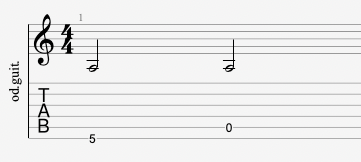
Then we repeat the process one string set over.
- Press the 5th fret of the 5th string (A). This is the note D.
- Play the open 4th string (D). Adjust the 4th string to match.
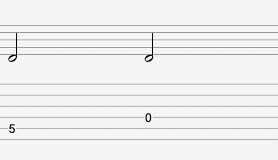
Then the process repeats again, another string down – toward the ground:
- Press the 5th fret of the 4th string (D). This note is G.
- Play the open 3rd string (G). Adjust the 3rd string to match.
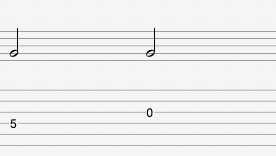
All right, now we have an exception. We’re going to:
- Press the 4th fret of the 3rd string (G). This is the note B.
- Play the open 2nd string (B). Adjust the 2nd string to match.
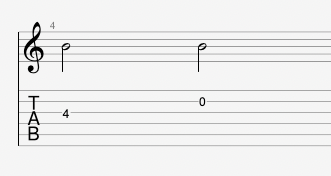
This breaks the 5th fret pattern we’ve been using so far. But don’t worry, after this one exception, we return back to the same 5th fret process another string down like so:
- Press the 5th fret of the 2nd string (B). This note is E.
- Play the open 1st string (high E). Adjust the 1st string to match.
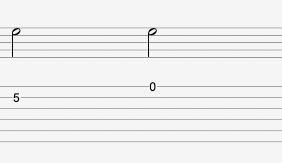
And there you have that is the first approach. Now, if you’re still not perfectly in tune… then next try the…
2) Harmonics Method
A harmonic on the guitar is a bell-like sound produced by lightly touching a string at specific points instead of pressing it down against the fretboard. Harmonics create a clear, ringing sound because they emphasize certain overtones of the string's vibration.
They are played by lightly touching the string (without pressing down) directly above certain frets, then picking the string. To tune with the harmonics method start like this:
- Play the 5th fret harmonic on the 6th string (this produces an A note).
- Play the 7th fret harmonic on the 5th string (this is also an A).
- Adjust the 5th string until these harmonics match in pitch.
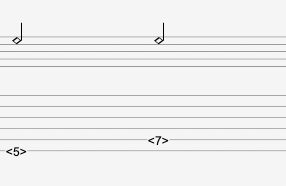
One thing I love about the harmonics method for how to tune a guitar is. You can have both notes ring at the same time, without having to reach over your strum hand like we saw in the 5th Fret Method.
From there, we repeat the process one string set over.
- Play the 5th fret harmonic on the 5th string (this produces a D note).
- Play the 7th fret harmonic on the 4th string (also a D).
- Adjust the 4th string until these harmonics match.
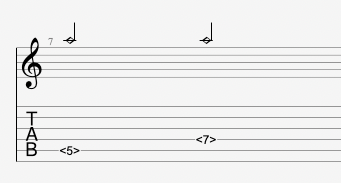
And, again another string down – toward the ground:
- Play the 5th fret harmonic on the 4th string (this produces a G note).
- Play the 7th fret harmonic on the 3rd string (also a G).
- Adjust the 3rd string until these harmonics match.
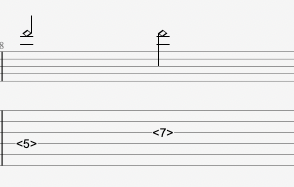
Once we get to the 2nd string, we have another exception. For this one:
- Play the 7th fret harmonic on the 6th string (which produces a B note).
- Compare it to the open 2nd string and adjust until they match.
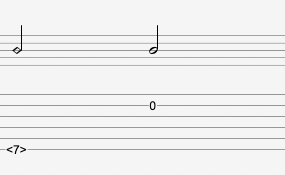
Finally, we repeat the same thing we did for the 2nd string, for the 1st string like this:
- Play the 5th fret harmonic on the 2nd string (produces an E note).
- Play the 7th fret harmonic on the 1st string (also an E).
- Adjust the 1st string until these harmonics match.
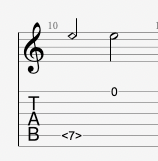
And there you have it, that my loyal member of the “MacPack” horde is how to tune a guitar with harmonics.
Now, if you’re still struggling to get your guitar “in tune”.
Perhaps you played a chord and then…
Yuck…
You want to barf.
Well, if so, then I need to introduce you to the most powerful, and mighty way of tuning your guitar. A way that even those with tin ears can do at the drop of a hat. However, this information is so rare, and so exclusive, there is no way I can reveal it publicly.
So if you want to get your hot little hands on it, simply do this:
- Go immediately to the link below
- Enter your best email and I will send it to you (assuming the page is still up)
- Say goodbye to your tuning struggles forever
Jon MacLennan
Like this blog post? Get Jon’s best guitar lessons straight to your inbox.
